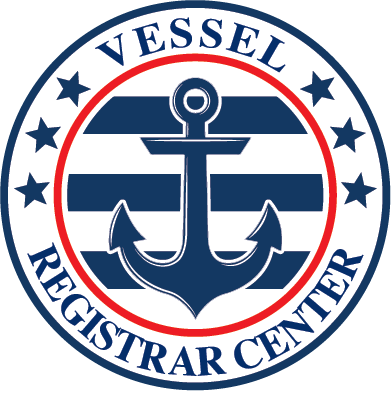Is it worth documenting your boat? The answer to this is yes. As proof of nationality and ownership, the US Coast Guard’s vessel paperwork is accepted worldwide.
Consequently, all vessels registered as Vessels of the United States are afforded the same protections as those that are not. An American citizen must own the boat for the government to recognize it as such.
For the most part, boats longer than 26 feet must have some documentation. Any vessel that has been officially registered will have an ‘Official Number’ affixed to the hull in some way. The use of permanent numbering provides an effective barrier to theft.
If a documented vessel is stolen, federal authorities charge its recovery and punishment, not state or municipal authorities.
Under federal law, every undocumented vessel with propulsion equipment must be assigned a number in the state where it is mainly operated.
According to flsenate.gov, states are free to devise their numbering system as long as it complies with or exceeds federal criteria.

The Advantages of Documenting Your Boat
The USCG documentation is one of the most esteemed registration obtained by boat owners. It provides many advantages and safeguards, particularly while traveling across international waterways.
Additionally, if you want to use your boat for business purposes, you’ll undoubtedly desire to document the process. Below are a handful of the advantages of having boat paperwork.
Ownership Is Clearly Defined
Documenting your boat establishes a clear route of a succession of ownership. The process of owning a seagoing vessel becomes significantly more accessible and straightforward due to this.
It guarantees that prospective lenders and purchasers are informed of any potential liens before making a transaction.
The Coast Guard provides documents with the best official identification number designation in an identical vein. The hull of the marine vessel must be marked permanently with this number, and it cannot be modified throughout the vessel’s service life.
In the unlikely event of a disagreement over ownership or theft, this number may be used to track down the boat’s rightful owner.
Savings on Operating Expenses
While there are extra charges associated with the paperwork, these prices are heavily weighted toward the beginning of the project. Most of the time, the renewal fees are little.
The paperwork for a vessel may also allow the owner to avoid registering the ship with some state and municipal governments. Both time and money may be saved by doing so.
Having a recorded vessel might be beneficial when it comes to financial difficulties. Lenders see the vessel as a more secure type of collateral since the documentation legitimizes the vessel’s ownership.
This might result in significant savings that are long-term in the form of lower mortgage rates and financing.
Protections Provided By the United States Coast Guard
If you want to go offshore, documenting your yacht may be one of the most crucial
benefits.
If you encounter other coast guards or ships, you may rest easy knowing that your vessel’s nationality is visible to them.
Additionally, it simplifies the process of entering foreign ports. Registrations with the state do not usually give this advantage.
In customs, documentation certification is recognized as an official registration document, allowing owners to pass through customs entrance and clearance more quickly.
The Disadvantages of Boat Documentation
There are costs associated with documentation. It requires money to start the process, and there are additional expenditures related to the state and municipal governments (including numbering fees, boating fees, taxes, and sometimes a registration fee).
Several hundred dollars, plus any further costs associated with renewing, transferring, or replacing your Certificate of Documentation, might be expected to be charged.
It will also be necessary to adequately number and mark vessels with their names and hailing port designations, which is not necessarily a huge expense but certainly is not insignificant.
Vessels with documented histories also have more transparent financial accounts. Mortgage histories and liens claims are often recorded with the boat’s documents.
This is advantageous for prospective purchasers and lenders, but it may be detrimental for a property owner already in financial distress.
Documenting vessels is essential for three primary reasons. The first and most important reason is for legal purposes.
Documentation helps to establish that a vessel is the rightful property of its owner, which offers them legal protection in the event of theft or illegal registration.
Documentation also provides national security by helping to make sure that no enemy or terrorist groups have access to the coasts.
Finally, documentation offers the owner the ability to register their boat in foreign ports, allowing them an opportunity to explore different areas of the world.




